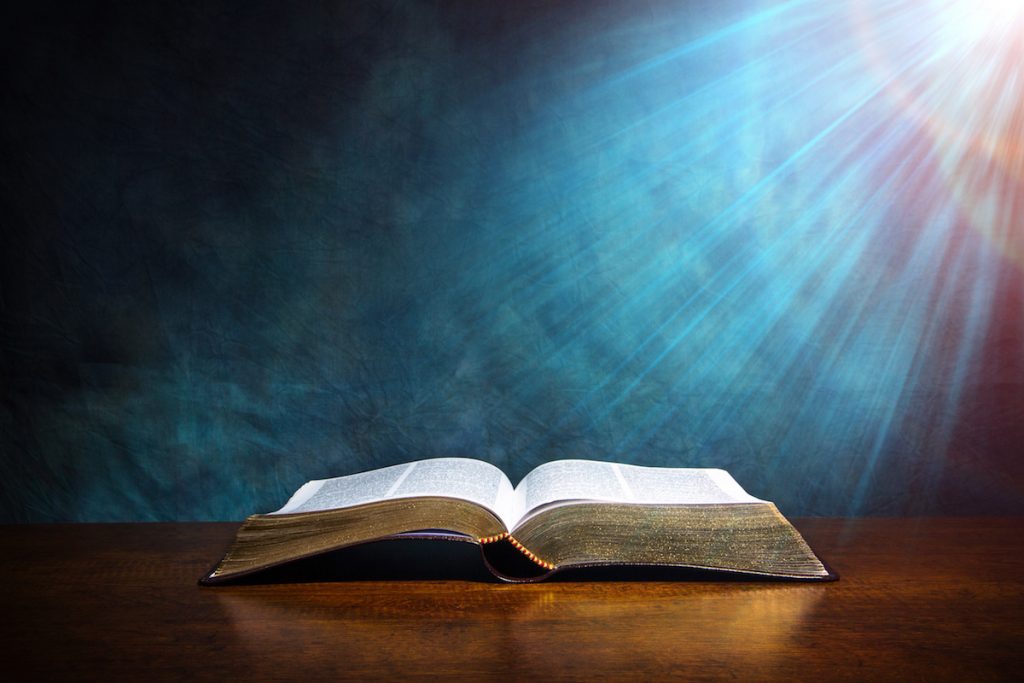I’m a proud Reformed Protestant and an ordained ruling elder in the Presbyterian Church in America (PCA), a decidedly conservative branch of Presbyterianism that remains faithful to the Westminster Confession of Faith. I’m also a lawyer. A little over two years ago, I moved from “Big Law” to a nonprofit organization—First Liberty Institute—whose mission is to preserve and promote religious freedom for people of all faith traditions through legal advocacy and education.
Since then, I have become increasingly convinced that evangelical Protestants—for convenience, I use “evangelical” (small “e”) capaciously to mean both Evangelicals and Reformed—must embrace new priorities and dramatically change the way we generally relate to religious minorities, both in the service of preserving our own religious freedom and better loving our neighbors.
We Need to Embrace Religious Pluralism
As a starting point, it is a common refrain among progressives today that we are using religious freedom as a pretext to (re)establish “Christian America.” Wendy Brown’s recent book, In the Ruins of Neoliberalism: The Rise of Antidemocratic Politics in the West, is an excellent example of such a view. To have any chance of seriously mitigating that (mis)perception of religious freedom, I suggest that we must quite intentionally respond through new forms of cultural engagement—more specifically, by publicly and profoundly demonstrating a sincere commitment to religious pluralism and its necessary counterpart, religious literacy.
Start your day with Public Discourse
Sign up and get our daily essays sent straight to your inbox.Importantly, by “religious pluralism” I do not mean universalism (the notion that all faiths are different paths to the same summit); relativism (the notion that religious truth is subjective); or multiculturalism (the notion that all cultures have equal value). Religious pluralism does not require one to abjure or even downplay any truth claim or cultural commitment. Rather, by “religious pluralism” I mean the condition where individuals, associations, and institutions in a diverse society may peacefully and publicly think, speak, and act according to their deepest beliefs and core values—whether stemming from traditional religion or secular conscience—without fear of social, political, or legal reprisal.
Under this conception, religious pluralism would create more space in American society for religious believers and nonbelievers to live freely and authentically according to the dictates of religion or conscience in all areas of life. As a corollary, it allows people to acknowledge, in a full-throated way, that there are deep and irreconcilable differences between people of various faiths and those of no faith—and that it is fine, even desirable, for us to say so respectfully.
Obviously, this conception of religious pluralism is not new. Broadly speaking, it has been called “principled pluralism” in the tradition of the Dutch prime minister and Reformed theologian Abraham Kuyper; “covenantal pluralism” in the tradition of Sir John Templeton; and, most recently, “confident pluralism” by John D. Inazu of Washington University School of Law in his excellent book of the same title. It is not my intention to break new theoretical ground here, but to begin a much broader—and different—conversation about religious pluralism among evangelical Protestants.
How to Move Toward Religious Pluralism
First, more evangelical Protestant pastors must publicly promote religious freedom for people of all faiths. In this vein, I commend the Rev. Timothy Keller, the pastor emeritus of Redeemer Presbyterian Church (PCA) in New York City, who clearly did so in a 2016 essay he wrote for the George W. Bush Institute. To be sure, some others have done so, too (Russell Moore of the Ethics and Religious Liberty Commission is another good example); the point is that they are in a small minority.
Second, we need to show some critical self-awareness. Though it is often said that we as a nation have valued religious freedom and pluralism since the Founding, we must recognize publicly that our history shows that our commitment to those values has often fallen short. Here again, I commend the Rev. Keller for having clearly said so, this time together with Professor Inazu in the introduction to their new book, Uncommon Ground: Living Faithfully in a World of Difference. They write:
Protestant culture [has] failed to recognize, and sometimes perpetuated, significant injustices. Protestants were often indifferent and sometimes hostile toward the religious freedom claims of religious minorities. White Protestants were largely absent from the civil rights movement, and some white Protestants engaged in personal and structural racism that exists to this day.
We need other pastors and evangelical Protestant leaders to make the same declarations and apologies.
Third, we must talk about religion differently. In a lecture delivered at the Heritage Foundation, Robert P. George of Princeton University recently argued that the term “religion” can be a stumbling block for many. He convincingly shows, on natural-law grounds, that religion should be considered as “conscientious truth-seeking regarding the ultimate sources of meaning and value,” which obviously includes rights of conscience not rooted in traditional religion. (For those who think that “natural law” is just for Roman Catholics, I must interject that John Calvin and multiple other Reformers subscribed to it.) Speaking of “religion” in this more inclusive way comports with the current cultural moment, making it perhaps more likely that more people would come to (re)embrace religious freedom conceptually.
Finally, some Christians need to stop harping on the notion that the United States was founded as a Christian nation. This is not to say that the Founders were not influenced by Christian ideas. Mark David Hall of George Fox University makes a superb academic case that they were in his recent book, Did America Have a Christian Founding? My point is much more basic: claims that America was founded as a Christian nation sound exclusive. Instead, we should highlight the reality that the Founders desired to protect the religious convictions of all Americans—including those who are not Christians.
Religious Pluralism Requires Religious Literacy
What I have proposed so far will not be enough. Achieving religious pluralism ultimately will require more than words. It will require engagement that is both relational and intellectual, the latter including an effort to increase our religious literacy. It will take a robust commitment to religious literacy among evangelical Protestants to have a real impact on rehabilitating religious freedom’s much-maligned reputation. Simply put, religious literacy is familiarity with the basic beliefs and practices of the world’s major religious traditions. Let’s call it “RQ,” the same way that emotional intelligence is often called “EQ.”
According to the Pew Research Center’s 2019 report entitled “What Americans Know About Religion,” Americans have low RQ. The report is based on a survey that asked thirty-two fact-based, multiple-choice questions about topics related to religion. The average U.S. adult answered fewer than half of them right—about fourteen. On average, Protestants as a whole correctly answered 14.3 questions, with evangelical Protestants as a group doing a little better (15.5). Based on these numbers, we Protestants all get failing grades.
Why is RQ so important? Given the reality of increased religious diversity in American life, the health of our society necessarily depends on how members of one faith tradition view and treat members of other faith traditions. For Christians, moreover, seeking to understand other faith traditions and the people who practice them is an act of Christ-like compassion, a way we can love our neighbors better. As Atticus Finch said in To Kill a Mockingbird, “You never really understand a person, until you consider things from his point of view . . . until you climb into his skin and walk around in it.” RQ is one way to help us do so.
Some, however, will undoubtedly argue that it’s potentially dangerous for Christians to study other faith traditions. But C.S. Lewis could never have written The Abolition of Man if he had not done so. And William F. Buckley Jr. thought doing so quite worthwhile. In fact, while decrying how various academic subjects had been distorted by the progressive Left at Stanford, Buckley added: “It is a pity, this whole messy thing, among other reasons because we could all learn from reading the classics of other cultures . . . beginning with the Hindu scriptures, written in Sanskrit, especially the Upanishads and the Bhagavad Gita.” So there is strong precedent for my advocating greater RQ among those of us who cherish Western civilization and traditional Christianity.
In sum, it’s time for evangelical Protestants to make room in American society for people of other faith traditions and to learn more about their beliefs and practices. Our pastors and lay leaders need to embrace and prioritize that message. Doing so would show both our commitment to loving our neighbors as ourselves and our confidence that our tradition can survive and even thrive in the free market of ideas and religion.













